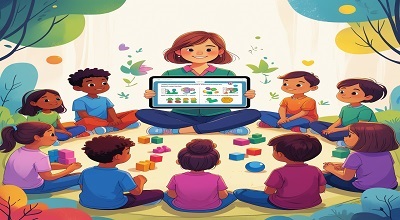Therapy-Based Educational Tools
Therapy-Based Educational Tools: Therapy-based educational tools integrate psychological and therapeutic principles into learning environments to enhance emotional well-being, cognitive development, and academic performance. These tools are designed to support students, educators, and mental health professionals in fostering resilience, emotional regulation, and social skills.
With advancements in educational technology, therapy-based tools now include digital apps, interactive programs, and evidence-based strategies that cater to diverse learning needs. This article explores the latest therapy-based educational tools, their applications, and real-world examples.
Understanding Therapy-Based Educational Tools
Therapy-based educational tools are interventions that blend therapeutic techniques with instructional methods to support mental health and learning. These tools are rooted in approaches such as:
- Cognitive Behavioral Therapy (CBT)
- Dialectical Behavior Therapy (DBT)
- Mindfulness-Based Stress Reduction (MBSR)
- Art and Play Therapy
- Social-Emotional Learning (SEL) Programs
They are used in schools, special education, online learning, and professional development for educators.
Latest Therapy-Based Educational Tools & Examples
A. Digital Mental Health Apps
- Headspace for Education – Provides mindfulness and meditation exercises for students and teachers to reduce stress.
- Mood Meter – An app based on the Yale Center for Emotional Intelligence that helps users track and regulate emotions.
- Sanvello – A CBT-based app offering therapy techniques for anxiety and depression.
B. Social-Emotional Learning (SEL) Platforms
- Nearpod’s SEL Lessons – Interactive lessons on empathy, resilience, and self-awareness.
- ClassDojo – Encourages positive behavior through gamified SEL activities.
- Second Step – A research-based program teaching emotional regulation and conflict resolution.
C. Virtual Reality (VR) Therapy Tools
- Floreo – Uses VR to teach social skills to neurodiverse students.
- Mightier – A biofeedback gaming system that helps children manage emotions through play.
D. Art & Play Therapy Tools
- Lego®-Based Therapy – Enhances social communication in children with autism.
- Therapeutic Storytelling Kits – Tools like “Feelings Detective” help children express emotions through narratives.
E. AI-Powered Therapy Assistants
- Woebot – An AI chatbot using CBT techniques to provide mental health support.
- Replika – An AI companion that offers therapeutic conversations.
Benefits of Therapy-Based Educational Tools
- Improves Emotional Regulation – Helps students manage anxiety, anger, and stress.
- Enhances Academic Performance – Reduces barriers to learning caused by emotional distress.
- Supports Inclusive Education – Adapts to neurodiverse and special needs students.
- Encourages Teacher Well-being – Reduces burnout through self-care tools.
Challenges & Considerations
- Privacy Concerns – Ensuring student data protection in digital tools.
- Accessibility – Making tools affordable and available to all schools.
- Training for Educators – Teachers need professional development to implement these tools effectively.
Future Trends in Therapy-Based Education
- Gamification of Mental Health Tools
- Increased Use of AI and Machine Learning
- Wearable Tech for Emotional Tracking
- Global Expansion of SEL Programs
FAQs
1. What are therapy-based educational tools?
These are interventions combining psychological therapy techniques with teaching methods to support mental health and learning.
2. How do digital apps help in therapy-based education?
Apps like Headspace and Sanvello provide guided exercises in mindfulness, CBT, and emotional regulation.
3. Can VR be used for therapy in schools?
Yes, tools like Floreo use VR to teach social skills and emotional management in an immersive way.
4. Are these tools effective for neurodiverse students?
Absolutely! Tools like Lego®-Based Therapy and Mightier are designed specifically for autism and ADHD.
5. How can schools implement these tools effectively?
Schools should provide teacher training, secure funding, and integrate tools into existing curricula.
Conclusion
Therapy-based educational tools are transforming modern education by addressing mental health alongside academic growth. From digital apps to VR therapy, these innovations create inclusive, emotionally supportive learning environments. As research advances, these tools will continue to evolve, offering new ways to nurture student well-being and success.
Free Download: TIMI Slots Download App
